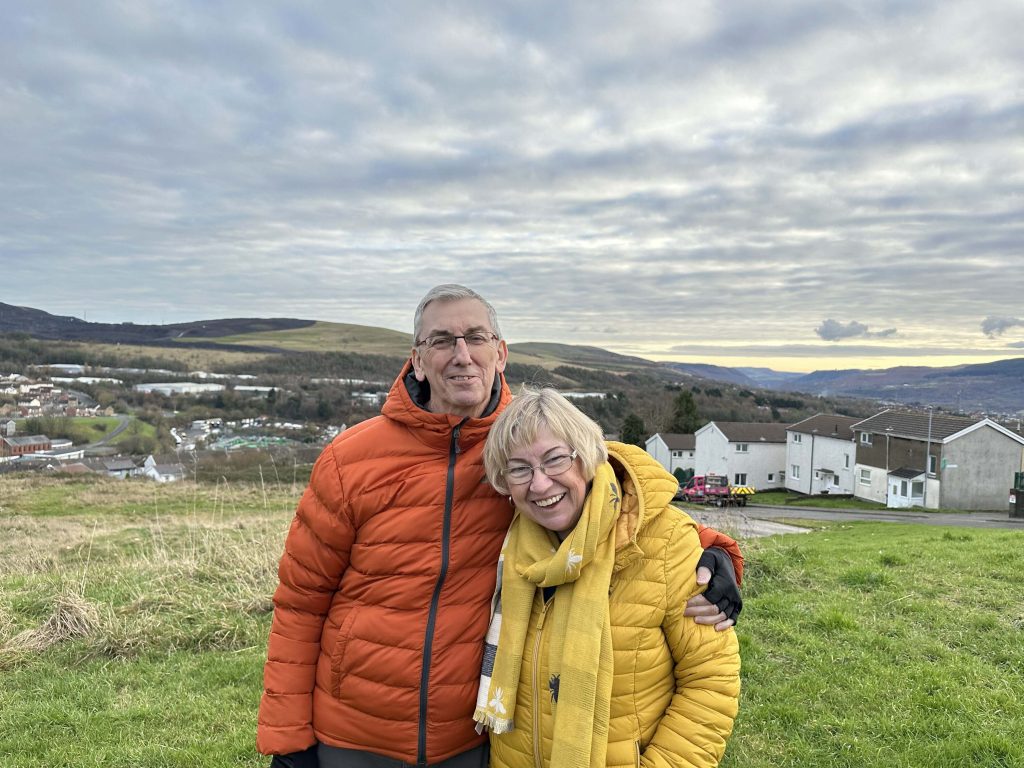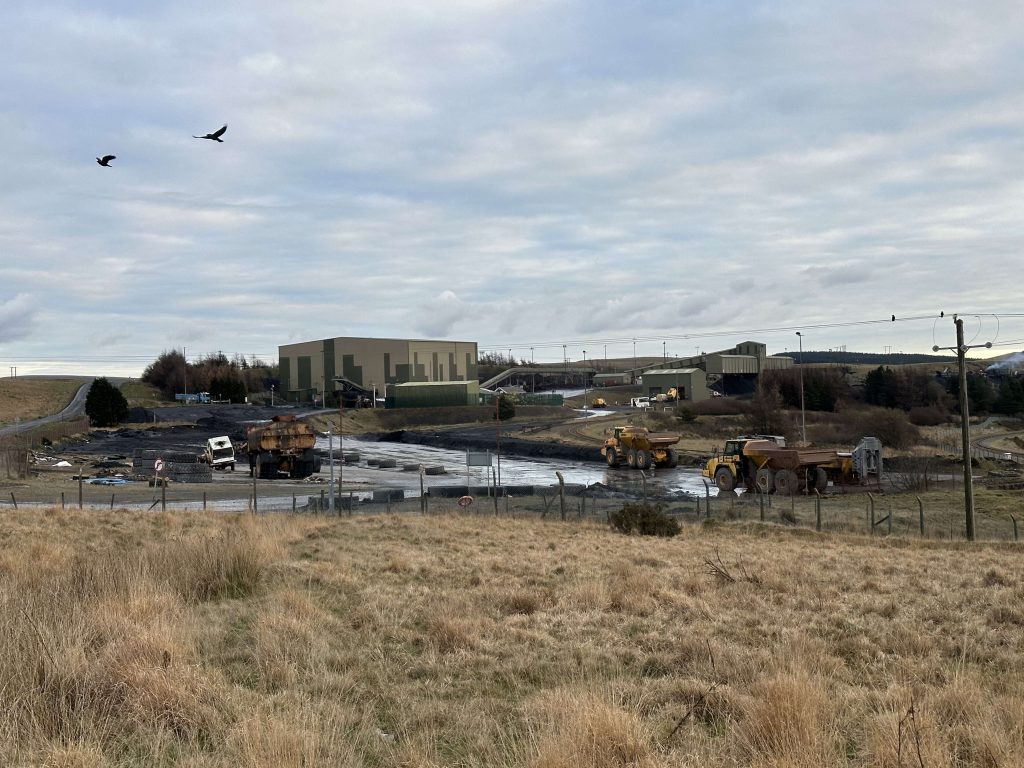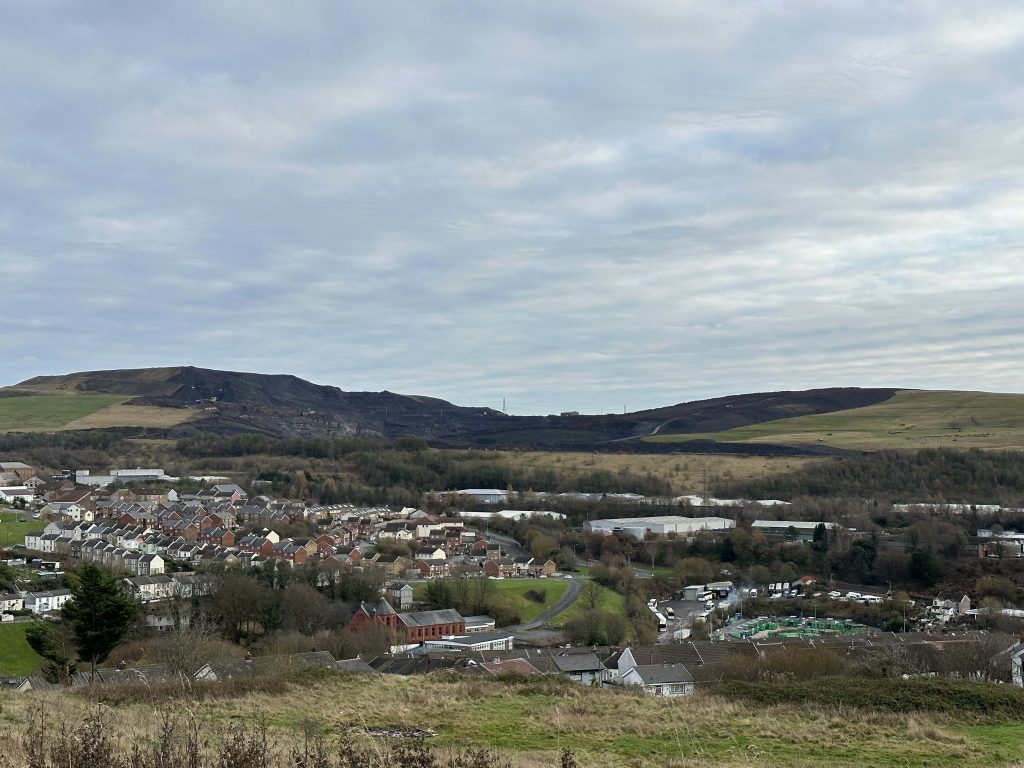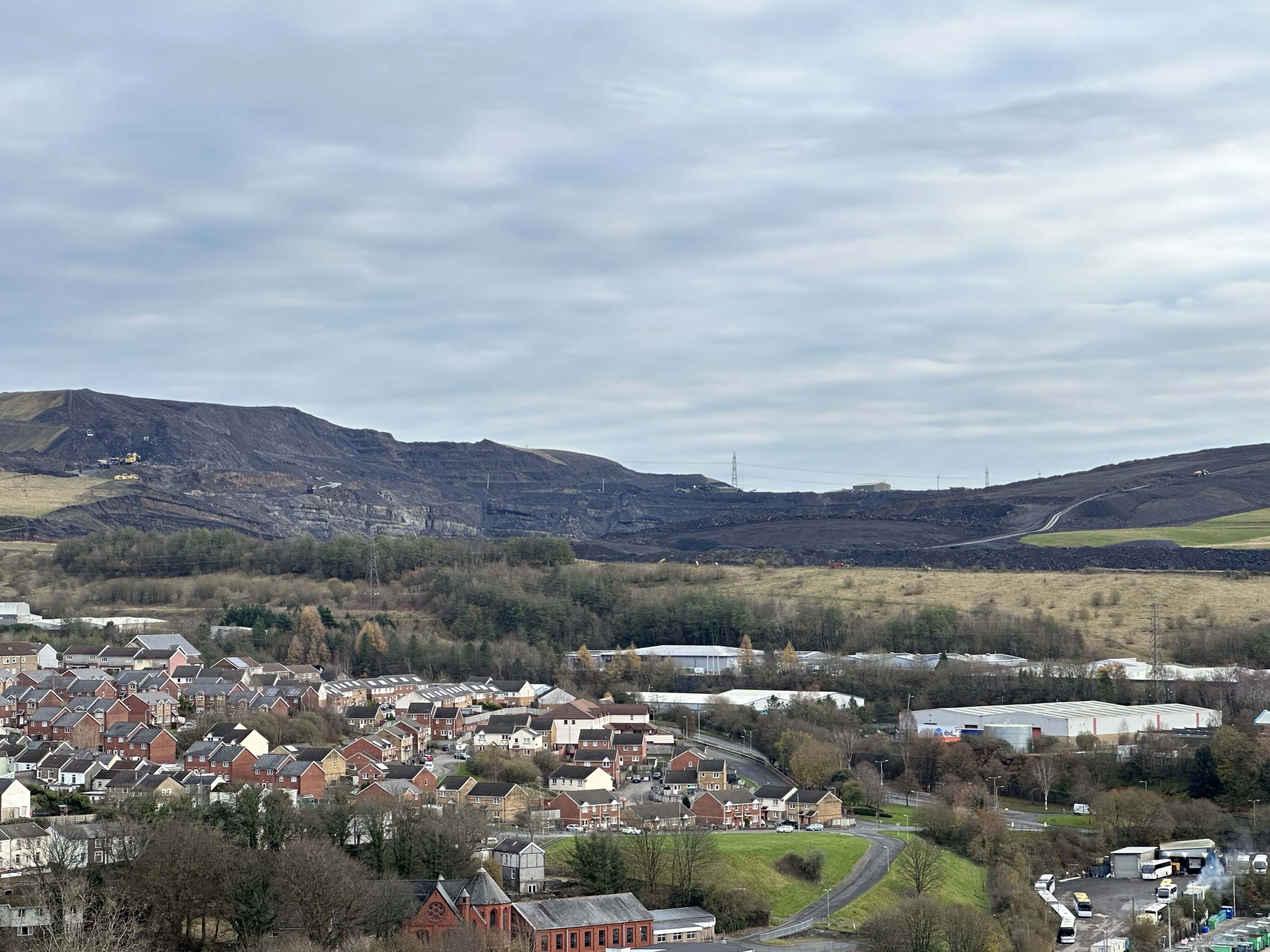Alyson and Chris Austin campaign against the expansion of Merthyr’s Ffos-y-Fran but also need to counter a local culture of disillusionment
BEFORE I’ve even sat down in Alyson and Chris Austin’s home on a little estate in Merthyr, Chris has started explaining the couple’s latest frustration and distress.
A recent planning application, submitted in September, seeks to extend the mining operations of the UK’s largest open cast coal mine, Ffos-y-Fran, for another nine months.
The couple plans to oppose the application and keep fighting what they see as a blight on their environment.
“We’ve been doing this for 18 years,” says Alyson.

Chris and Alyson moved into their family home almost 20 years ago with their children, who are now in their 30s, and were quickly swept up in a local campaign to stop the Ffos-y-Fran coal mine going ahead.
But, in 2005, the Ffos-y-Fran coal extraction scheme was approved and, despite multiple legal attempts to overturn it, Alyson and Chris were soon living with the reality of the coal mining operation: blasting, loud noise and black dust.
Initially, the couple was opposed to the mining operation entirely. Nineteen years later, their focus has shifted but they are still campaigning.
“We know how it works,” says Alyson, as we sit in the living room with a cup of tea.
“We know the system doesn’t really allow for local voices and local opinions. It’s just there because it’s got to be there in writing, like a tick box.”
The couple thought there was some light at the end of the tunnel with the mining operation’s licence due to expire in September, but then came a planning application by Merthyr (South Wales Ltd) – the company that runs the mine – for a nine-month extension.
“We had a bottle of champagne in the fridge for when the licence was up in September, and then we find out about the section 73 (to extend mining operations),” says Chris.
“We cried foul, of course, but…”, he trails off and shrugs his shoulders.
The company is expected to submit a new application in 2023 to continue operations until September 5, 2025, with land reclamation continuing for up to five years after that.
The battle drags on. The couple are now the only people left in their community fighting against the continuation of the fossil fuel operation.
Campaign groups have come and gone. The pair explain that a combination of old age and Covid have led to the dissipation of what was once an active community protest. It is now hard to get locals motivated, they say.
“Lots of the people are very much for what we’re fighting for but they won’t stick their heads above the parapet,” says Chris.
“With the local authority it’s gone straight through on a nod. We’ve spoken to the councillors and none of them are against it. They’ve all been spoken to. The local authority is completely supportive – it’s a unanimous decision.”


But it’s not just the extension of the coal licence that has caused such upset in the Austins’ lives. As keen environmental campaigners – they lead the Merthyr arm of Friends of The Earth Cymru – Chis and Alyson are disappointed in what they see as broken promises by the Welsh Government.
The Welsh Government’s Coal Policy Statement, published March 2021, stated: “Coal is a non-renewable energy source…Welsh ministers therefore do not intend to authorise new Coal Authority mining operation licences or variations to existing licence.”
Chris says that Ffos-y-Fran is “an example of ‘putting your money where your mouth is’.
“The Welsh Government, if they can’t deliver on coal in 2022 with the world going to hell and back in a handcart, what hope have we got for the future?”
They feel further let down by Ffos-y-Fran’s promise of land reclamation, a promise the couple says the company has now contradicted.
In its planning application submitted in September 2022, the company stated: “As the Council is fully aware, there are insufficient funds within the Escrow and restoration fund to allow for the full and successful implementation of the current restoration strategy for the site.”
The Escrow account is a safety net worth £15 million which has been put aside in case Merthyr (South Wales Ltd) is unable to continue operations and has to withdraw – at which point the money would be released to Merthyr Council and the Welsh Government. However, Chris says the money would “only be enough to put a path round and plant a couple of trees”.
But the Austins aren’t just fighting against the coal company, they’re fighting against the tiredness and disappointment of a whole community which feels it has been left behind.
Walking around Dowlais, I meet locals who echo the Austins’ disappointment.
Sian Anthony, who works in Dowlais Public Library, said: “It’s just accepted. It’s been going on so long now, and some of the problems we used to have aren’t going on anymore.”
The library has benefited directly from the mine, with community grants being used to buy public access computers and keep the building open.
But Denis Morgan, reading quietly in a corner, pushes back: “If they were a company worth their salt they’d be environmentally friendly and working for the community. And if they were, we wouldn’t need anything else. But they’re not.”
Denis sees the company’s philanthropy as a distraction tactic in an attempt to make the local community more accepting of something that he feels is detrimental.
Denis says that after generations of underfunding and low aspirations there is “a lot of apathy because we’ve been told so much and what we’ve been told doesn’t come to fruition”.
He isn’t hopeful of a successful land reclamation scheme and sees no end in sight for the mining company’s operations.
When asked if he would join a campaign group against it, he replied with a shrug of his shoulders saying he was old and had to “live life for today”.
A reluctance to speak out also came up in a discussion with Pauline Evans and Angela Lennon, members of the Dowlais Arts Group, who said it wasn’t in their nature to be confrontational. Angela says: “It’s been part of the history of the area and maybe it’s because the people have had it as part of their history they accept it. It’s a part of life for the area.”
But Alyson and Chris want to change that. Alyson says that the apathy of the community stems from a “lack of confidence really in your ability to change anything”.
Chris agrees: “We’re so used to being put down and having the fag end of everything up here in Merthyr that even if people had been part of campaigns years ago it has been beaten out of them.”
The Cardiffian approached Merthyr Council, Welsh Government and Merthyr (South Wales Ltd) for comment for this article but none provided a response.
Before Alyson and Chris dropped me off at Merthyr station, they drove me round Dowlais so I could see for myself how the mine overshadows the town.
The pit gapes open on the landscape, looking down on Dowlais and Merthyr as though it’s ready to swallow it whole. Orange trucks zip across the black horizon in a steady swarm of activity, unabated by the winter cold.
The recent planning applications are currently being reviewed and so, for now, Chris and Alyson wait patiently for the decision that will affect their plans for the future. They haven’t lost belief that they can still throw a stone in this David and Goliath battle.
Chris says: “That’s what we’re trying to do, to demonstrate to people that you can – a little couple living in a house on an estate – can change the world.”



